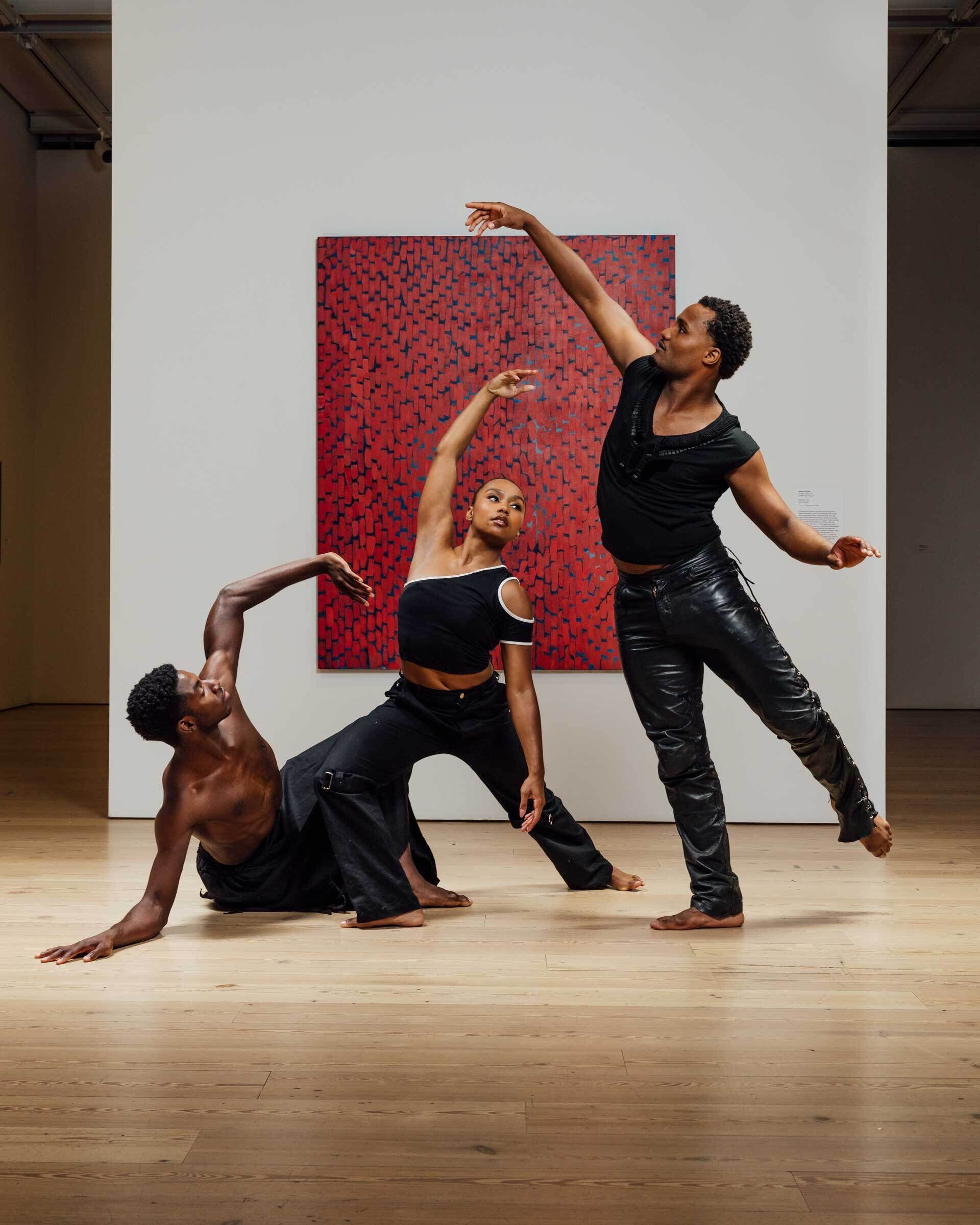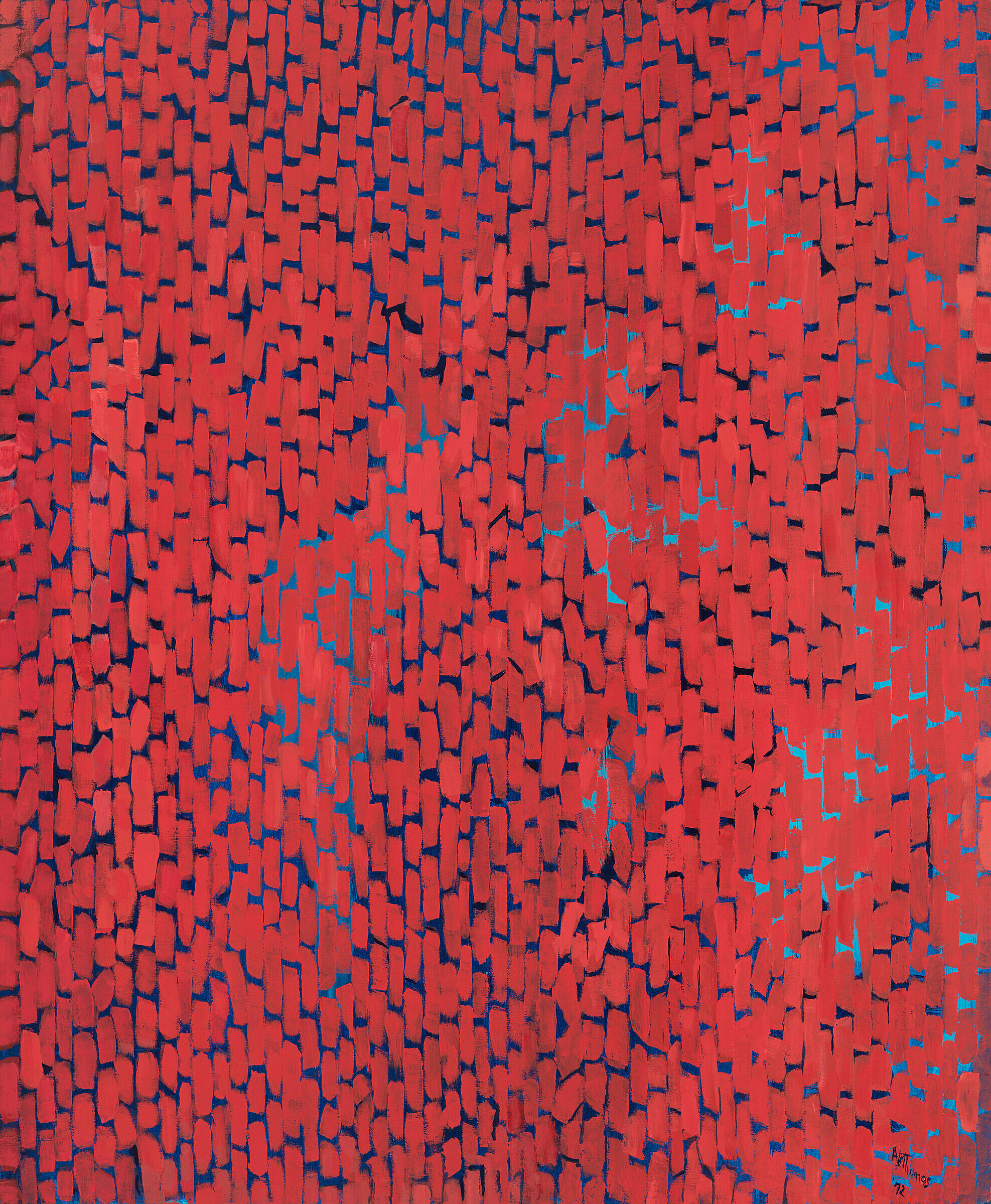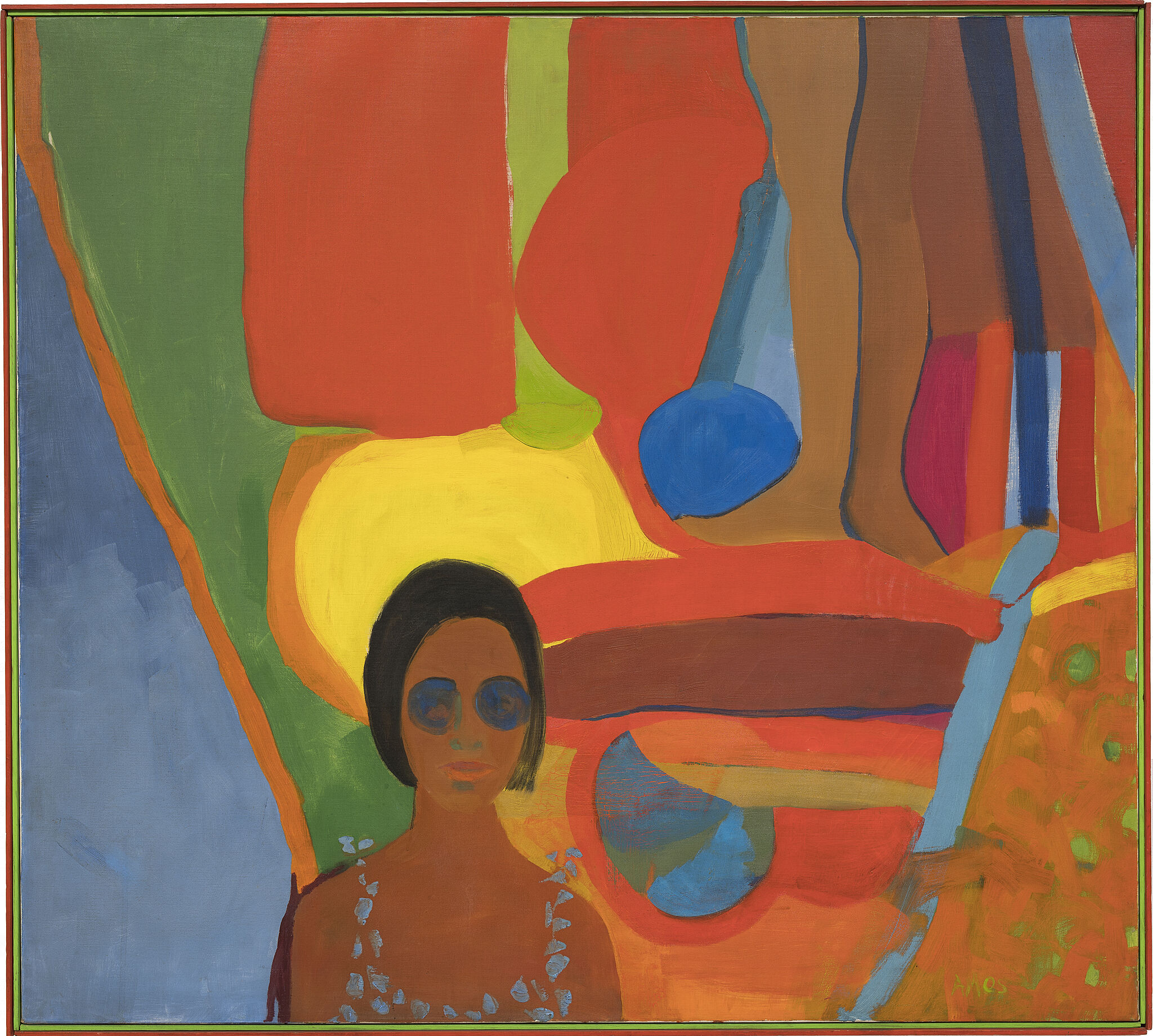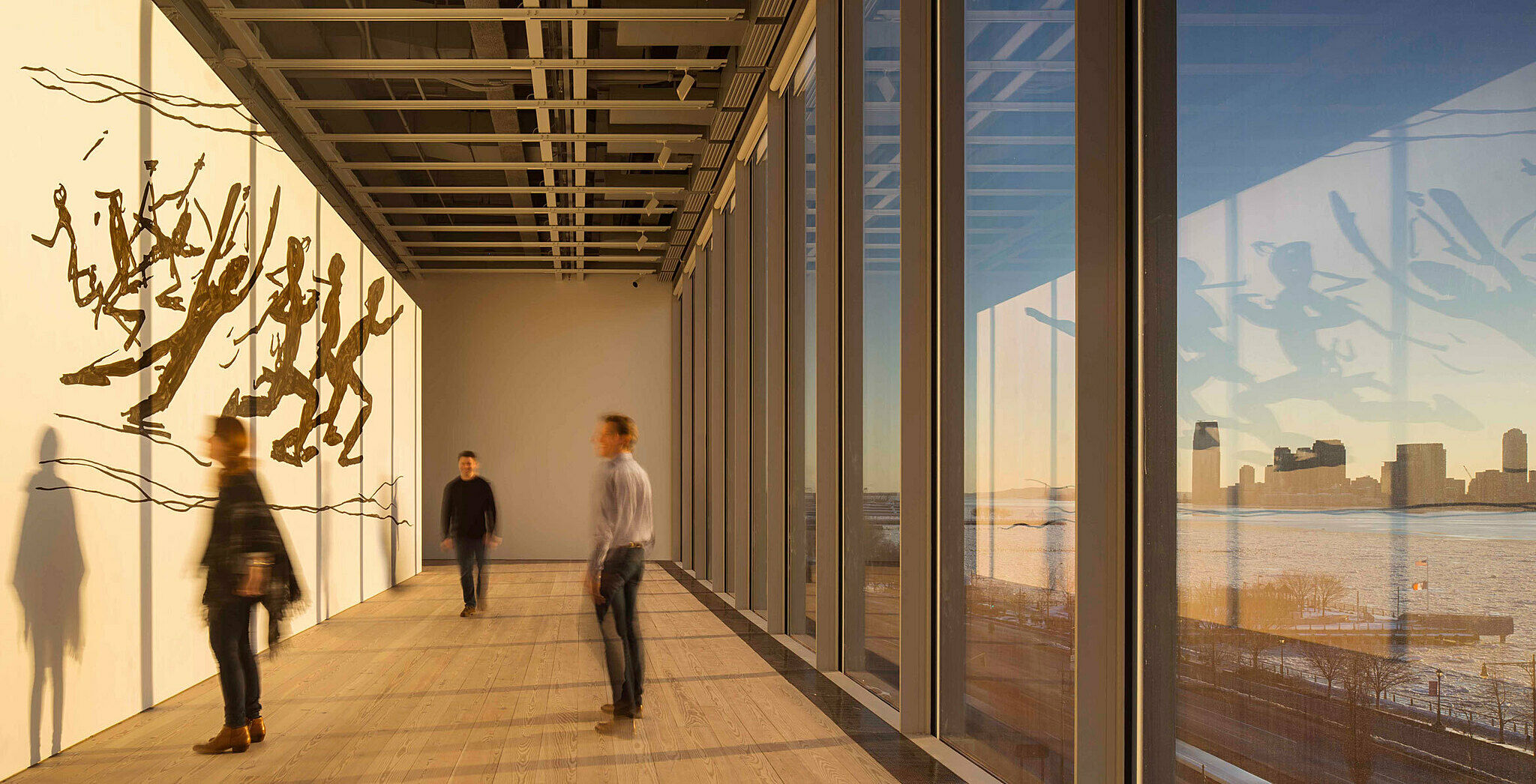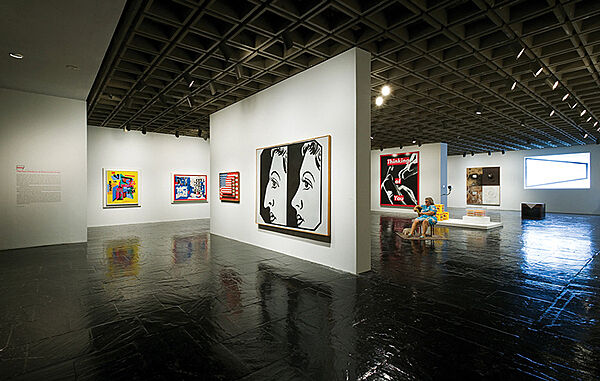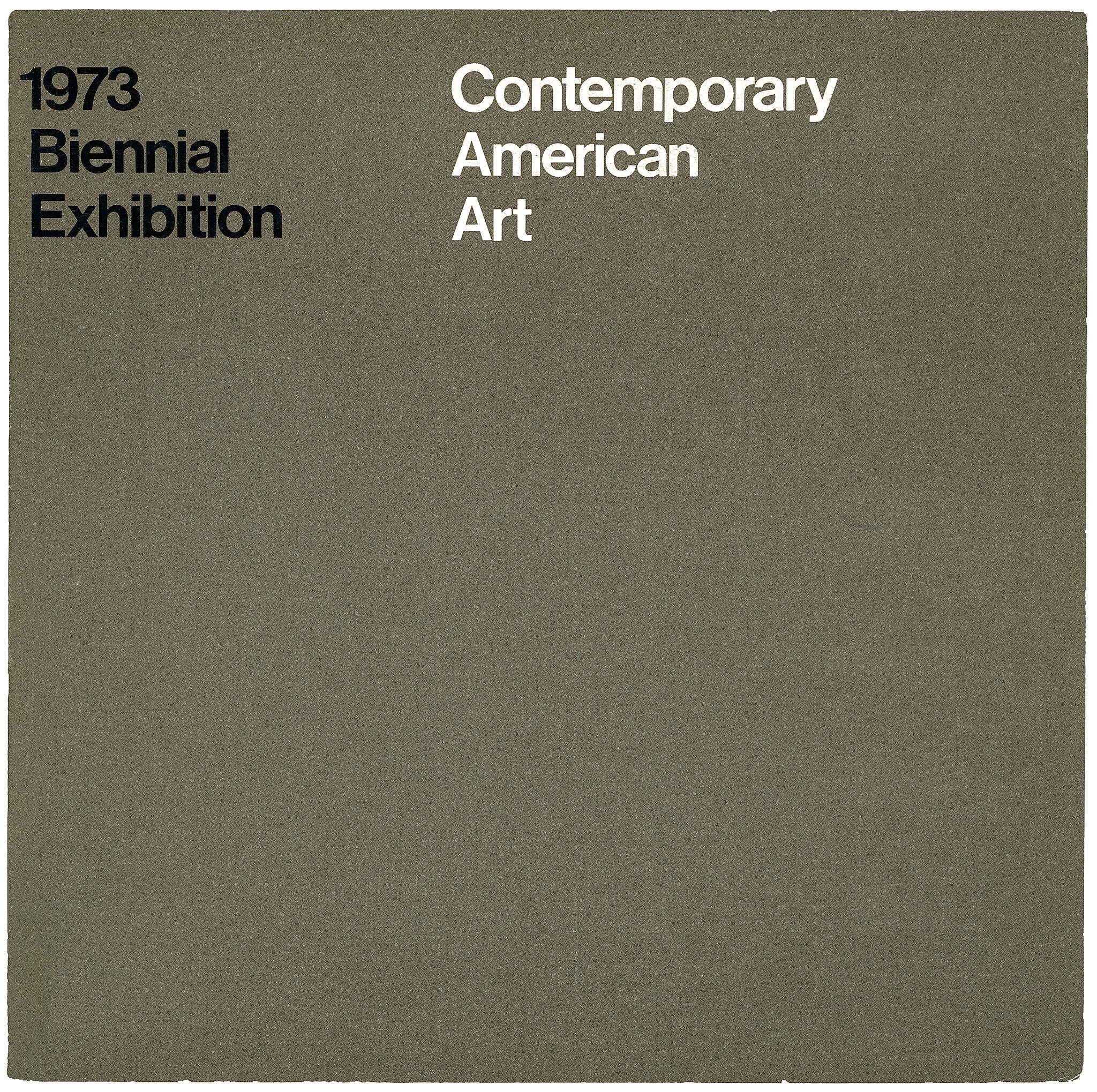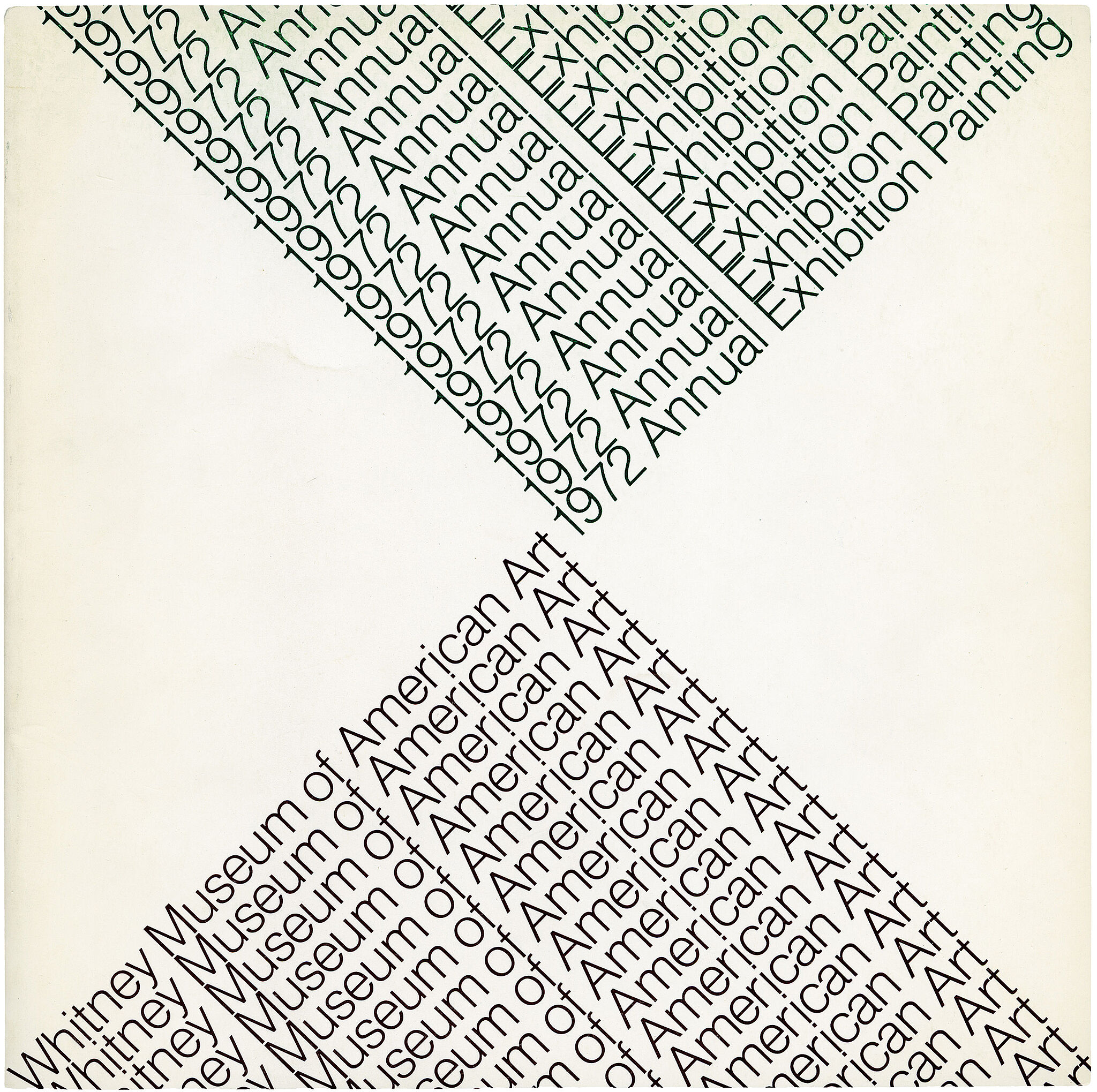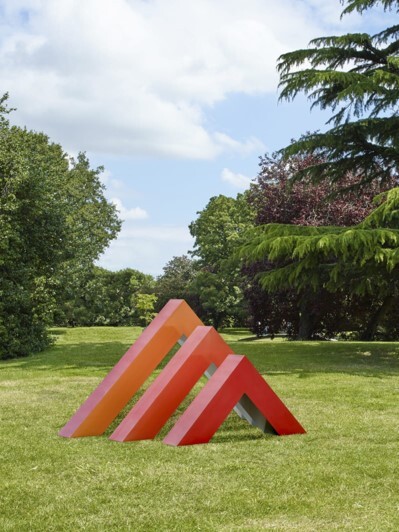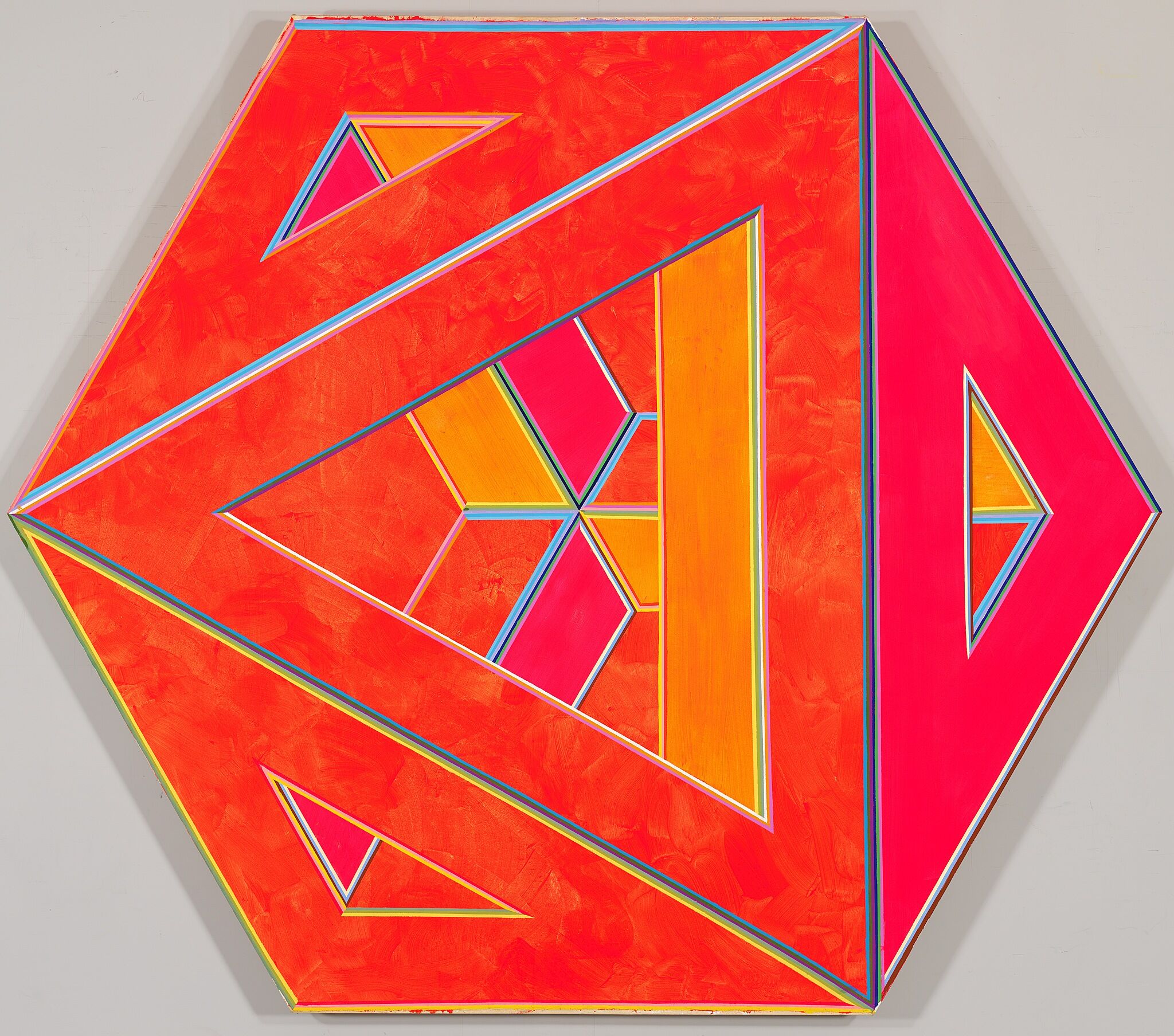Alvin Loving
1935–2005
The title of Alvin Loving’s Septehedron 34 describes the open, seven-faced object that he painted onto a shaped canvas. Loving began working in the late 1960s with geometric shapes, which provided him with what he described as “a sort of mundane form that could be very, very dull unless a great deal was done with it.” The young painter used this structure as an arena for experimentation, a way to uncover his particular colorist sensibility. Loving enlivens his subject here by juxtaposing Day-Glo pigments that recede or advance relative to one another. The resulting composition toggles between three-dimensional illusion and painterly flatness. His paintings garnered significant attention, and in 1969 he became the first African American artist to receive a one-person show at the Whitney Museum.
The shaped canvases and geometric forms depicted in Loving’s paintings from the late 1960s and early 1970s align with the emphasis on rigorous abstraction and repetition championed by many of his Minimalist contemporaries. However, the mid-1960s also saw the rise of the Black Arts Movement and other activist groups whose members asserted the urgent need for art reflective of African Americans’ everyday struggles. While Loving’s abstractions eschew the figurative content often associated with activist art, he was politically engaged in his life outside the studio and believed that “art is about needs that have not been met.” Indeed, his claim that “even a box can be a self-portrait” prompts the viewer to consider how Septehedron 34, a thoroughly nonrepresentational painting, can also reveal the personal.
Introduction
Alvin D. Loving Jr. (September 19, 1935 – June 21, 2005), better known as Al Loving, was an African-American abstract expressionist painter. His work is known for hard-edge abstraction, dyed fabric paintings, and large paper collages, all exploring complicated color relationships.
Wikidata identifier
Q4738077
Information from Wikipedia, made available under the Creative Commons Attribution-ShareAlike License . Accessed February 15, 2026.

